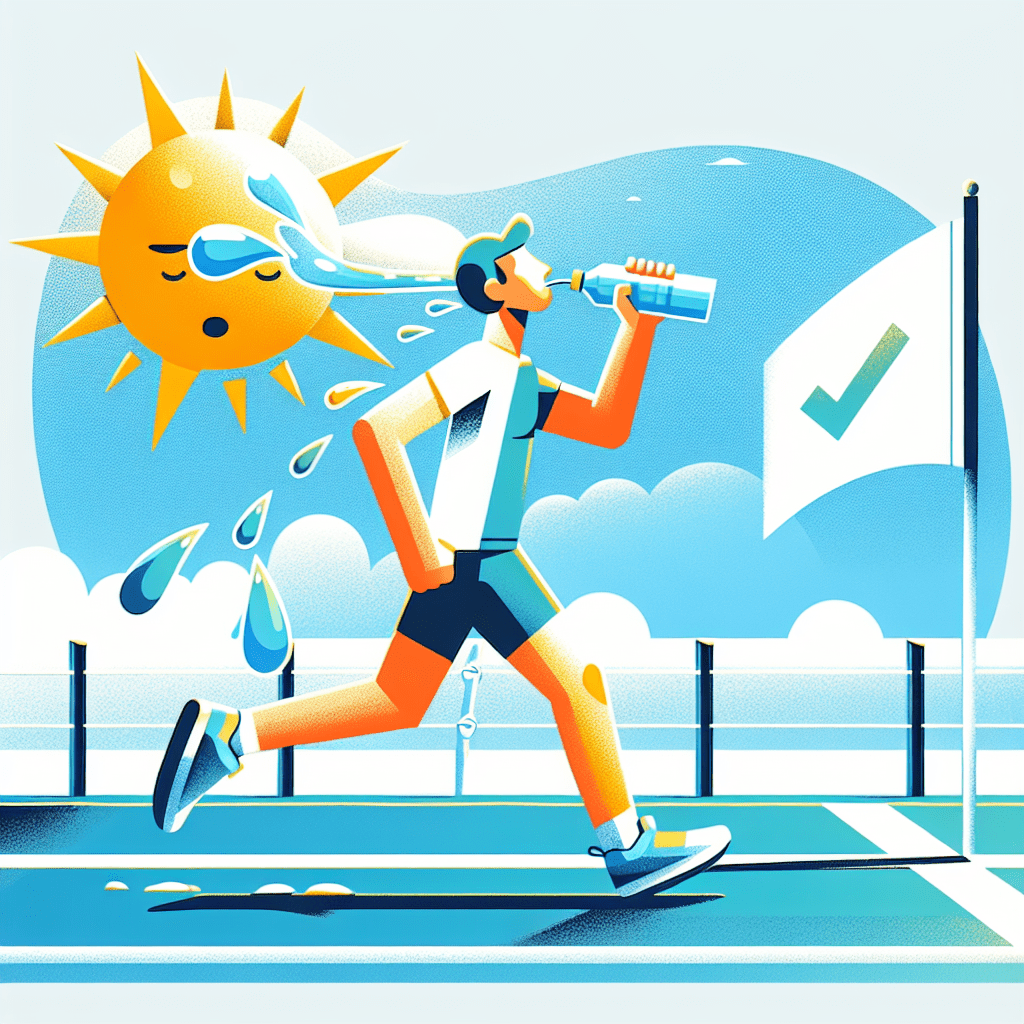Marathon Training: Why Hydration is Key to Crossing the Finish Line

Introduction to Marathon Training: The Importance of Hydration
Marathon training is a physically demanding endeavor that requires not only strength, endurance, and mental toughness, but also a deep understanding of the body's needs. One of the most critical aspects of marathon training, often overlooked, is hydration. Proper hydration is not just about drinking water; it's about maintaining the body's balance of fluids and electrolytes to ensure optimal performance.
Understanding Hydration and Its Role in Performance
Hydration is the process of replacing body fluids lost through sweating, breathing, and other metabolic processes. When we exercise, especially for prolonged periods like during marathon training, our bodies lose water and electrolytes at a faster rate. This loss, if not adequately replaced, can lead to dehydration, which can significantly impair physical performance and health.
As Dr. Timothy Noakes, author of "Waterlogged: The Serious Problem of Overhydration in Endurance Sports," explains, "Dehydration impairs exercise performance, reduces endurance, and increases the risk of heat illness." This statement underscores the importance of hydration in marathon training and overall athletic performance.
"Dehydration impairs exercise performance, reduces endurance, and increases the risk of heat illness." - Dr. Timothy Noakes
The Science Behind Hydration and Marathon Training
Scientific research has consistently shown the direct correlation between hydration and athletic performance. A study published in the Journal of Sports Sciences found that even a 2% decrease in body weight due to fluid loss can lead to a significant decrease in performance. The study concluded that "maintaining hydration during long-distance running can optimize performance."
"Maintaining hydration during long-distance running can optimize performance." - Journal of Sports Sciences
How to Stay Hydrated During Marathon Training
Staying hydrated during marathon training involves more than just drinking water. It also includes replenishing electrolytes, which are essential minerals like sodium, potassium, and magnesium, lost through sweat. Consuming sports drinks, coconut water, or electrolyte tablets can help replace these vital nutrients.
It's also important to note that hydration should be a continuous process. Don't wait until you're thirsty to drink water. Instead, aim to drink small amounts of fluid regularly throughout your training sessions.
The Dangers of Overhydration
While under-hydration can lead to dehydration and impaired performance, overhydration can also pose serious health risks. Consuming excessive amounts of water can lead to a condition called hyponatremia, where the body's sodium levels become dangerously low. This condition can cause nausea, seizures, coma, and in severe cases, even death.
As legendary marathon runner Bill Rodgers once said, "More sweat is not always a sign of better fitness. It's just a sign that you need to drink more water." This quote serves as a reminder that while hydration is essential, it should be done in moderation.
"More sweat is not always a sign of better fitness. It's just a sign that you need to drink more water." - Bill Rodgers
Conclusion: Hydration is Key to Marathon Training Success
In conclusion, hydration plays a pivotal role in marathon training. It helps maintain performance, prevent dehydration, and keep the body functioning optimally. However, it's important to remember that hydration is a balance. Both under-hydration and overhydration can lead to serious health issues.
As you embark on your marathon training journey, remember the words of Dr. Timothy Noakes, "Dehydration impairs exercise performance, reduces endurance, and increases the risk of heat illness." Keep these words in mind as you train, and make hydration a key part of your training strategy.
"Dehydration impairs exercise performance, reduces endurance, and increases the risk of heat illness." - Dr. Timothy Noakes
Summary
Marathon training requires a comprehensive understanding of the body's needs, including the critical role of hydration. Hydration is not just about drinking water; it's about maintaining the body's balance of fluids and electrolytes. Dehydration can impair performance, reduce endurance, and increase the risk of heat illness. Therefore, maintaining hydration during long-distance running is essential to optimize performance. However, it's equally important to avoid overhydration, which can lead to serious health risks. Remember, hydration should be a continuous process, and should be done in moderation. As you train for your marathon, make hydration a key part of your strategy, and you'll be



